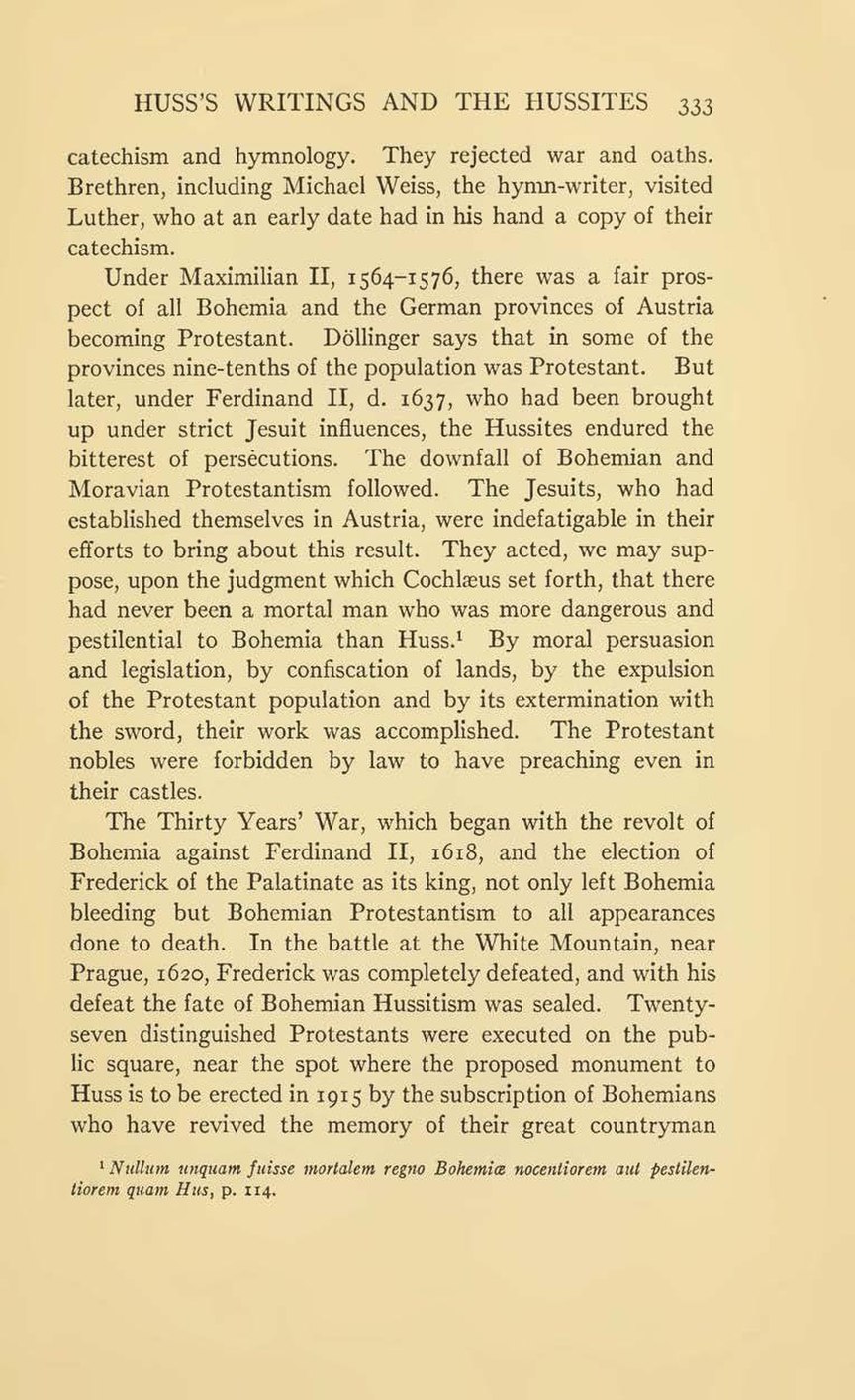catechism and hymnology. They rejected war and oaths. Brethren, including Michael Weiss, the hymn-writer, visited Luther, who at an early date had in his hand a copy of their catechism.
Under Maximilian II, 1564–1576, there was a fair prospect of all Bohemia and the German provinces of Austria becoming Protestant. Döllinger says that in some of the provinces nine-tenths of the population was Protestant. But later, under Ferdinand II, d. 1637, who had been brought up under strict Jesuit influences, the Hussites endured the bitterest of persécutions. The downfall of Bohemian and Moravian Protestantism followed. The Jesuits, who had established themselves in Austria, were indefatigable in their efforts to bring about this result. They acted, we may suppose, upon the judgment which Cochlæus set forth, that there had never been a mortal man who was more dangerous and pestilential to Bohemia than Huss.[1] By moral persuasion and legislation, by confiscation of lands, by the expulsion of the Protestant population and by its extermination with the sword, their work was accomplished. The Protestant nobles were forbidden by law to have preaching even in their castles.
The Thirty Years’ War, which began with the revolt of Bohemia against Ferdinand II, 1618, and the election of Frederick of the Palatinate as its king, not only left Bohemia bleeding but Bohemian Protestantism to all appearances done to death. In the battle at the White Mountain, near Prague, 1620. Frederick was completely defeated, and with his defeat the fate of Bohemian Hussitism was sealed. Twenty-seven distinguished Protestants were executed on the public square, near the spot where the proposed monument to Huss is to be erected in 1915 by the subscription of Bohemians who have revived the memory of their great countryman
- ↑ Nullum unquam fuisse mortalem regno Bohemia nocentiorem aut pestilentiorem quam Hus, p. 114.
